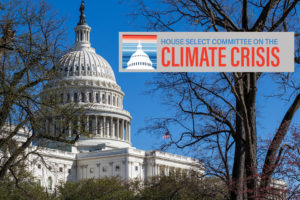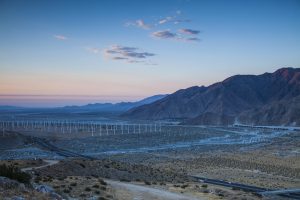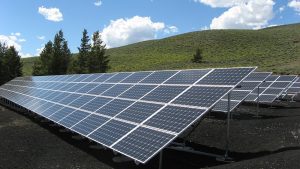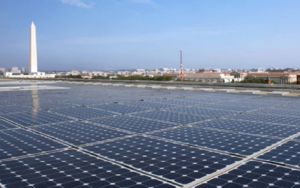37 item(s) were returned.
Electricity Transmission Research Manager
Niskanen Center
The Inflation Reduction Act (IRA) invests $369 billion in climate and energy security, including tax credits for clean energy generation. Despite the hefty price tag, it does little to fix how we build the energy infrastructure needed to bring generated power to consumers. The IRA and 2021’s bipartisan infrastructure law combined constitute just a fraction of the policy changes we need for a clean energy economy. Lack of necessary transmission is already a bottleneck in bringing more clean energy online and has catastrophic consequences in extreme weather. Without more interstate transmission, decarbonization will be slower and more expensive. We must… [more]
View InsightDirector, Payne Institute and Professor of Public Policy
Colorado School of Mines
In 2017, the Trump administration issued Executive Order 13817, which states “The United States is heavily reliant on imports of certain mineral commodities that are vital to the Nation’s security and economic prosperity. This dependency of the United States on foreign sources creates a strategic vulnerability…” Of the 35 critical minerals designated in a 2018 Department of Interior (DOI) report, the United States is 75-100% reliant on 24 of them. Many of these are essential inputs to clean energy technologies such as lithium-ion batteries, solar modules, and wind turbines. We can expect that the tremendous growth and innovation in resource-dependent… [more]
View InsightThe U.S. House of Representatives Select Committee on the Climate Crisis is requesting information around policies that Congress should adopt to solve the climate crisis and adapt to the impacts of climate change. Committee staff told us they would welcome feedback from OEP experts. Four specific questions from the committee’s request for information are outlined below. We will compile and send to the committee substantive comments posted to this discussion by November 11. U.S. electricity generation from wind power is more than 7 times higher today than it was in 2017, and U.S. solar power generation is 100… [more]
View InsightExecutive Director
Northwest Public Power Association
During an era of unprecedented change in the energy industry, hydropower offers a renewable and emission-free power source that boasts some unique attributes. Not only does hydropower provide reliable base-load generation, but it also has a high level of flexibility that enables storage and ramping capability. These qualities match well with the increasing need to balance intermittent renewable generation sources, such as wind and solar. At just seven percent of total electricity generation in the U.S., hydropower already displaces about 200 million metric tons of carbon dioxide emissions that would otherwise come from thermal generation. It is efficient in its… [more]
View InsightCommunications Director
ClearPath
To tackle a topic as monumental and divisive as climate change, it will take a politically realistic and technologically inclusive agenda built on advancing clean power around the world. Last Congress, we saw bipartisan support on issues such as a key tax incentive for carbon capture, and a similar fix for advanced nuclear. Legislators found common ground as they focused on both climate benefits and economics. The reality is that any impractical and hasty move toward an all-renewable power strategy in the U.S. will not only be too partisan, but it will also fail to affect the global emissions… [more]
View InsightManaging Attorney
Noyes Law Corporation
In October, the International Energy Agency (IEA) reaffirmed the leading role that bioenergy continues to play in decarbonization. IEA Executive Director, Dr. Fatih Barol, pointedly stated, “Modern bioenergy is the overlooked giant of the renewable energy field… We expect modern bioenergy will continue to lead the field, and has huge prospects for further growth. But the right policies and rigorous sustainability regulations will be essential to meet its full potential.” The IEA concludes that to meet long-term climate goals, renewable energy development in the heat, electricity, and transport sectors must accelerate. Transportation has clearly emerged as the most difficult sector… [more]
View InsightCommunications Director
Vote Solar
In May, the California Energy Commission unanimously approved the nation’s first commitment to putting solar on qualifying new home construction starting in 2020 – a move that’ll be good for our cost-of-living and our climate alike. Building solar on new homes is consistent with California’s zero net energy goals for new buildings, and it’s a great way of getting rooftop solar built cheaply for customers. When solar PV is installed at the time of construction, you get economies of scale and save big on non-hardware costs like customer acquisition, permitting and financing. Assuming modules are 40 cents/W and the other… [more]
View InsightCalifornia is the second state after Hawaii to establish a 100% carbon-free energy goal for its electric grid. In late August, the state legislature passed Senate Bill 100 (SB 100) which created a 100% clean electricity standard by 2045 and also altered California’s current renewable portfolio standard (RPS). Previously, California’s RPS mandated 50% of the state’s retail electricity sales come from renewable sources by 2030, but following passage of SB 100, that figure is now modified to 60%. To achieve the 2045 goal, however, SB 100 takes a broader approach by explicitly instructing California’s energy agencies to “plan for 100%… [more]
View InsightResearch Manager
The Center for Growth and Opportunity at Utah State University
Renewable portfolio standards (RPS) require a certain percentage of the electricity sold by utilities to be from qualifying sources as determined by state statute. RPS are one of the most common state-level environmental policies; 29 states and Washington DC have mandatory standards. Despite their popularity, however, renewable portfolio standards may not achieve their environmental ends in a cost-effective manner. Basic analysis of the effects of implementing RPS shows only a nominal impact on carbon emissions, but a large impact on electricity prices. Professors at Louisiana State University compared states that had enacted RPS to states that had not, and showed… [more]
View InsightThe Clean Power Plan (CPP), the signature piece of environmental regulation from the Obama Administration, is now facing an uncertain future. Following President Trump’s request for a review of the rule and the June 1st announcement that the U.S. will be leaving the Paris agreement, the President is widely expected to eliminate or significantly change the CPP. Review by the Office of Management and Budget (OMB) typically takes about 60 days, meaning that the review period may be drawing to a close. The CPP has faced criticism from both sides of the aisle, as well as from industry and environmental… [more]
View Insight








